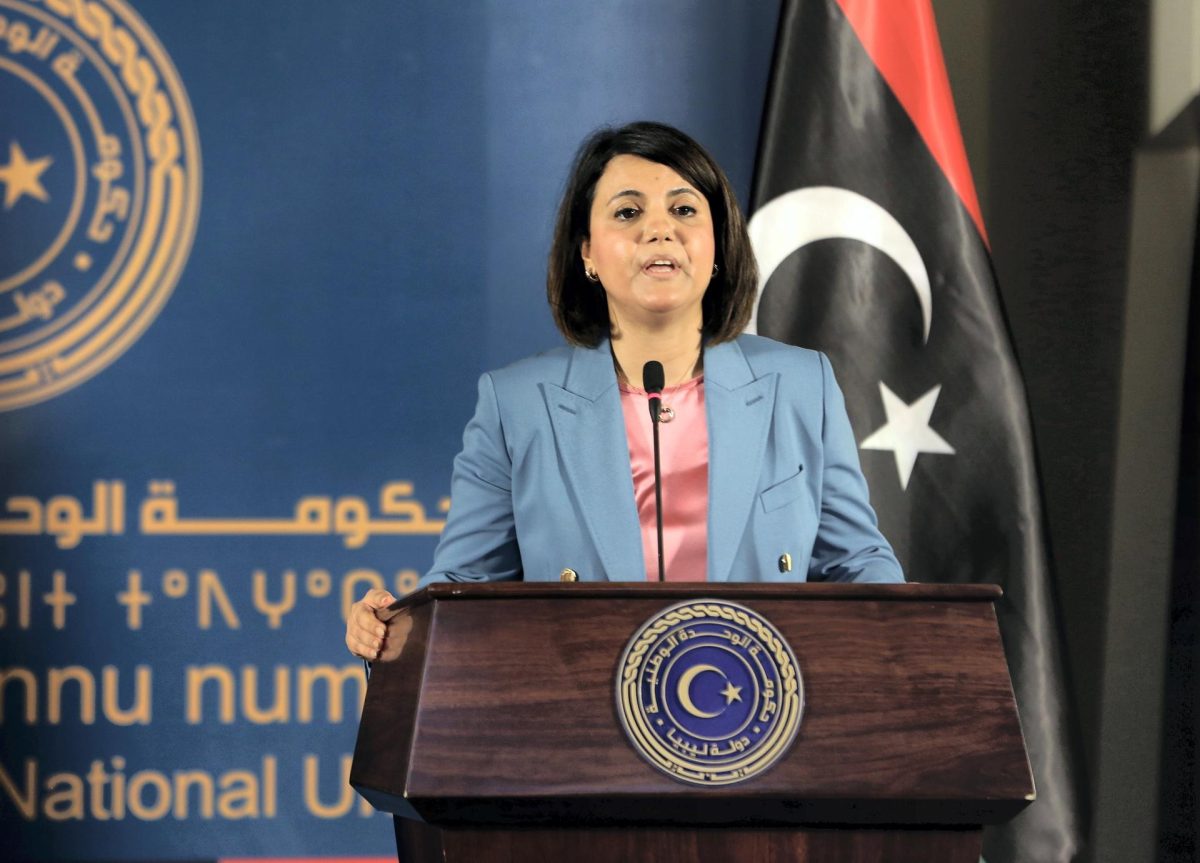Sources close to Prime Minister Abdul Hamid Dbeibah reported al-Mangoush’s dismissal after an earlier announcement of an investigation into her meeting with Israeli Foreign Minister Eli Cohen last week in Rome.
Al-Mangoush has been the subject of much speculation since yesterday’s announcement by Cohen, which set off large protests across Libya, including rumours that she had left the country.
Libya’s Internal Security Service responded by denying reports that it had allowed or facilitated her departure and announcing that she was on the list of people barred from travelling.
The political row broke out Sunday after Israel’s Foreign Ministry announced the two countries’ top diplomats met the previous week in a meeting hosted by Italian Foreign Minister Antonio Tajani.
“I spoke with the foreign minister about the great potential for the two countries from their relations,” Cohen said in a statement from Israel’s foreign ministry, adding that it was the first such diplomatic initiative between the two countries.
The news was not well-received in Israel, with commentators remarking that Cohen’s behaviour was a breach of acceptable diplomatic practice.
Israel’s Channel 12 commented that Cohen’s announcement had seriously damaged Israel’s credibility.
Opposition politician Yair Lapid agreed, saying on X, the platform formerly known as Twitter, that Cohen’s action had made countries doubt the suitability of Israel as a foreign relations partner.
The Libyan Foreign Ministry has announced al-Mangoush had “refused to meet with any party” representing Israel, and that the meeting was “a chance and unofficial encounter… which did not involve any discussion, agreement or consultation”. It also accused Israel of trying to “present this incident” as a “meeting or talks”.
The North African country does not recognise Israel nor does it have diplomatic relations with Tel Aviv. Under a 1957 Libyan law, dealing with Israel is punishable by up to nine years in prison.
According to The Associated Press, an anonymous Libyan government official said the normalisation of relations between Libya and Israel was first discussed in a meeting with Dbeibah and CIA Director William Burns, who visited the Libyan capital in January.
According to the official, Burns proposed that Dbeibah’s government, which is recognised as Libya’s internationally backed government, join the group of four Arab countries that normalised relations with Israel under the US-brokered Abraham Accords in 2020.
The Libyan premier gave initial agreement but was concerned about public backlash in a country known for its support for the Palestinian cause, the official said.
On Monday, an Israeli official told the Reuters news agency that the meeting between al-Mangoush and Cohen was agreed in advance “at the highest levels” in Libya and lasted more than an hour.
Separately, Israel’s Former Foreign Minister and Prime Minister Yair Lapid criticised Cohen for going public with the sensitive meeting.
“Countries of the world this morning are looking at the irresponsible leak of the meeting of the Israeli and Libyan foreign minister and asking themselves: Is it possible to manage foreign relations with this country? Is it possible to trust this country?” Lapid said in a statement.
Israel has normalised relations with some Arab countries in recent years as part of US-backed deals known as the Abraham Accords.
However, Prime Minister Benjamin Netanyahu’s hardline government has come under intense criticism from Arab states because of surging violence in the occupied West Bank and for backing the expansion of Jewish settlements in the occupied territory.
Dbeibeh had replaced al-Mangoush with Fathallah al-Zani, the current youth minister, as interim foreign minister.
Photos and videos on social media showed demonstrations in front of the foreign ministry building in Tripoli on Sunday night, calling for al-Mangoush’s dismissal. Some protesters also called for Dbeibah’s resignation, setting fire to his residence in Tripoli.
Earlier on Sunday evening, Libya’s Presidential Council asked the government for “clarifications”, according to Libya Al Ahrar TV, citing spokesperson Najwa Wheba.
The Presidential Council, which has some executive powers and sprang from the UN-backed political process, includes three members representing the three Libyan regions.
Their request said the meeting “does not reflect the foreign policy of the Libyan state, does not represent the Libyan national constants and is considered a violation of Libyan laws which criminalise normalisation with the ‘Zionist entity’”.
